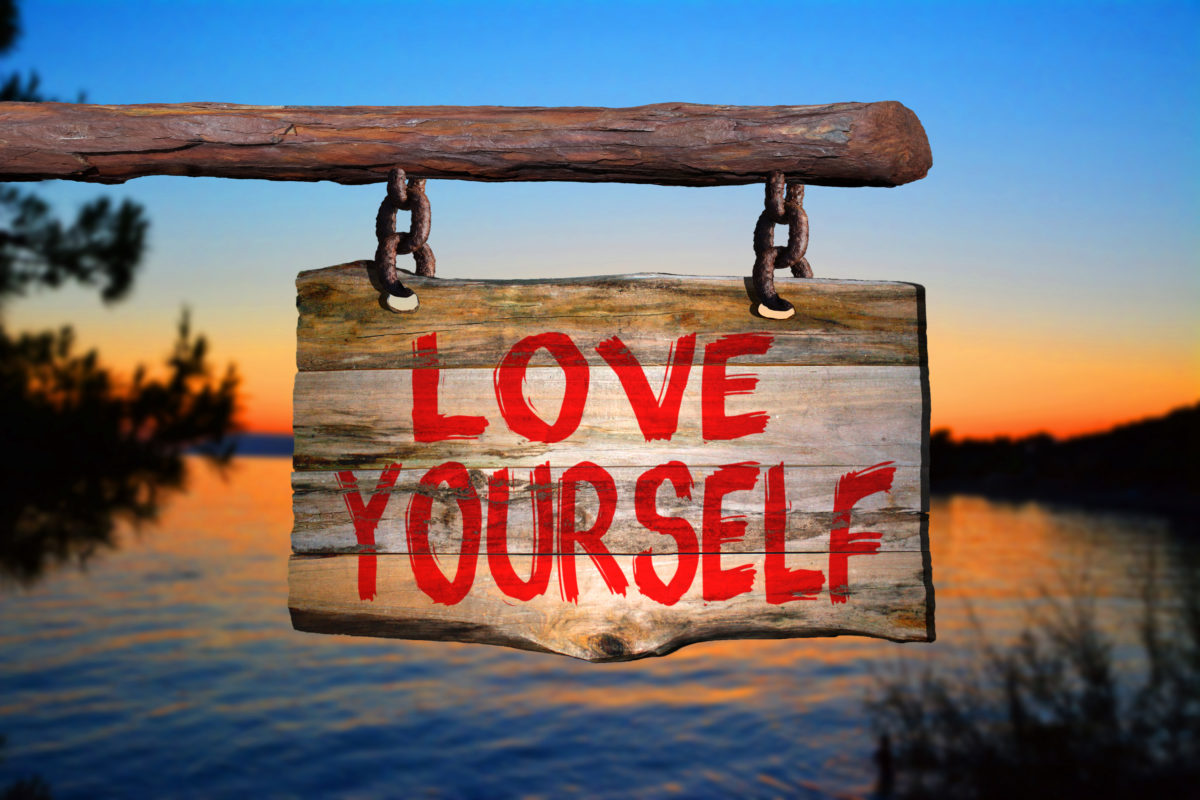Can Self-Discipline be Learned?

Why didn’t I stop myself from eating that fifth piece of pizza?
Why can’t I make myself finish that project at work?
Why did I skip the gym YET AGAIN?
What is wrong with me?!
The only thing worse than struggling with self-discipline is serving that struggle up with a generous dollop of self-directed anger and self-blame. In my twenty-plus years as a psychologist, I have listened to questions like those above uttered countless times by intelligent, competent people who are caught up in an endless, frustrating cycle of “why can’t I?”
We human beings are not born with an innate ability to regulate and control ourselves (self-discipline). These are actually vital skills that become wired into our brains when we receive the right kind of emotionally attentive parenting in childhood.
How We May Naturally Learn Self-Discipline in Childhood
- When your mother called you in from playing with your neighborhood friends for dinner, whether she realized it or not, she was teaching you how to stop yourself from doing something fun and rewarding in order to do something healthy and necessary. She was teaching you that some things must be done, even if you don’t feel like it.
- When your dad gave you the weekly chore of cutting the grass and then followed up in a loving but firm way to make sure you did it, he was teaching you how to make yourself do what you don’t want to do and the rewards of that.
- When your parents made sure you brushed your teeth twice a day
- When they said no to dessert
- When they set aside and enforced “homework hour” every day after school because you’d been slacking on homework
- When they continued to love you but set your curfew earlier as a consequence for your having broken it….
All of these parental actions and responses are internalized by you, the child. These actions set up a system in your brain during your childhood that will allow you to, later on as an adult, be able to override your own desires. When our parents do this right for us, we not only internalize the ability to make ourselves do things and to stop ourselves from doing things, we internalize our parents’ voices, which later in adulthood become our own.
Now let’s take a moment to talk about Childhood Emotional Neglect.
Childhood Emotional Neglect (CEN)
What is “Childhood Emotional Neglect?” It’s a parent’s failure to respond enough to a child’s emotional needs. In this way, Emotional Neglect is not something that a parent does to his child; instead, it’s something that he fails to do for his child. You may be wondering what this means, and how it is relevant to self-discipline.
Although there are a number of possible underlying causes of self-discipline struggles, like depression or attention deficit disorder (ADD), I often have found that the cause is actually invisible, unmemorable, Childhood Emotional Neglect.
Many people who were emotionally neglected in childhood freely describe themselves as procrastinators. Some call themselves lazy. Common are battles with over-and under-eating, excessive spending, or over-drinking. Many emotionally neglected people also have difficulty forcing themselves to exercise, do menial tasks or do anything that’s not immediately fun or rewarding.
The truth is, all forms of self-discipline can be boiled down to two basic ingredients, which are:
Making yourself do things you don’t want to do — and stopping yourself from doing things you want to do but shouldn’t.
How Childhood Emotional Neglect Causes Self-Discipline Problems in Adulthood
One of the infinite variety of ways that a parent can emotionally neglect a child is to fail to provide enough structure and consequences for the child. Many loving, well-meaning parents do not understand why this is so important. They prefer not to fight with their child. They want to avoid conflict. They want their child to be happy all the time. Perhaps they are distracted by their own interests; perhaps they are addicted, exhausted, self-centered, widowed, struggling financially, or depressed. So they let the child stay out playing far too late; they mow the lawn themselves because it’s easier; they let the child eat dessert too often; they let that curfew-break slide by. They may feel that letting the child do whatever he wants to do makes for a more peaceful, “happier,” household.
I believe that most parents would not opt for the more peaceful household if they understood that they were failing their child. They would instead choose to enforce more rules, assign more chores, and dole out more consequences so that their children would learn how to:
Make themselves do what they don’t want to do, and stop themselves from doing what they shouldn’t do.
What You Can Do
If you struggle with self-discipline in a certain area(s), I encourage you to consider Emotional Neglect as a cause. The good news is this: if your brain wasn’t “programmed” in childhood to have this skill, it’s not too late! Once you understand why you’re struggling with self-discipline, you can stop blaming yourself. You can stop calling yourself “lazy” or “weak-willed,” or “a procrastinator,” and instead start on a clearly laid-out road to recovery.
If you would like to learn more about Childhood Emotional Neglect, read more throughout this website. To see my recovery program for Self-Discipline problems caused by Emotional Neglect, see my book, Running on Empty: Overcome Your Childhood Emotional Neglect. To get it in paperback, Kindle or Nook, click HERE.
Sappy, Sloppy Emotions: What’s the Point?

“Although many of us may think of ourselves as thinking creatures that feel, biologically we are feeling creatures that think.”
-Dr. Jill Bolte Taylor, Neuroscientist, and author of My Stroke of Insight
Stupid, sappy, mushy, melodramatic, insipid, tiresome, wimpy, lame. These are all words that I have heard people use to describe their own emotions.
As a psychologist, I see in our society a poor tolerance for something that is a deeply personal, biological part of who we are as humans: our emotions. Indeed, if you grew up in one of the many, many households where emotion was discouraged or poorly tolerated (Childhood Emotional Neglect), you may now, as an adult, have a negative connotation to feelings of all kinds. You may see emotion as a sign of weakness.
You may hide your feelings from yourself and others; even the people you care about the most. You may regard the expression or sharing of feelings as maudlin, illogical, or just plain useless. You may have no idea what you feel or why because you have buried your emotions so deeply, even from yourself.
Why did emotion evolve in the first place? Sometimes, especially to emotionally neglected people, emotions feel like a burden. Wouldn’t it be better if we didn’t have to feel sad when we had a conflict with a friend, angry when someone cuts us off in traffic, or anxious before a job interview? On the surface, maybe it would seem easier if we didn’t have to feel those things. But my belief is that if we didn’t have emotions, life would not be better. In fact, it would not be sustainable.
Emotion is necessary for survival. Emotions tell us when we are in danger. They tell us when to run, when to fight, and what is worth fighting for. Emotions are our body’s way of communicating with us and driving us to do things. Here are some examples of the purposes of just a few emotions.
9 Emotions and Their Specific Functions
| Emotion | Function |
| FEAR | tells us to escape/self-preservation |
| ANGER | pushes us to fight back/self-protection |
| LOVE | drives us to care for spouses, children, others |
| PASSION | drives us to procreate, create and invent |
| HURT | pushes us to correct a situation |
| SADNESS | tells us we are losing something important |
| COMPASSION | pushes us to help others |
| DISGUST | tells us to avoid something |
| CURIOSITY | drives us to explore and learn |
You get the idea. For every emotion, there is a purpose. Emotions are incredibly useful tools to help us adapt, survive and thrive. People who were emotionally neglected were trained to try to erase, deny, push underground, and in some cases, be ashamed of, this invaluable built-in feedback system. Because they are not listening to their emotions, they are operating at a disadvantage from the rest of us. Pushing away this vital source of information makes you vulnerable and potentially less productive. It also makes it harder to experience life to its fullest.
Emotions do more, though, than drive us to do things. They also feed the human connections that give life the depth and richness that makes it worthwhile. It is this depth and richness which I believe provides the best answer to the question, “What is the meaning of life?” Emotional connections to others help us stave off feelings of emptiness as well as existential angst.
You and Your Feelings
If you have spent a lifetime trying to deny your natural, biological emotional responses, you may at times feel disconnected, empty, or unfulfilled in life. The people who love you may find you distant, self-contained, or even arrogant. You may find yourself irritable or angry more often than you would like.
If any of this rings a bell to you, please read more about Emotional Neglect throughout this website. There is much more information about it in my book, Running on Empty: Overcome Your Childhood Emotional Neglect. In the book, I talk about the many forms that Emotional Neglect can take, the 12 types of parents who unwittingly emotionally neglect their child, and the 10 issues that emotionally neglected children struggle with as adults. I also offer six clear strategies for overcoming Emotional Neglect.
To learn more about Childhood Emotional Neglect, how it happens and how to recover from it, see my books Running Empty No More: Transform Your Relationships and Running On Empty: Overcome Your Childhood Emotional Neglect , and Take The Emotional Neglect Test for free.
Reverse Golden Rule: Treat Yourself as You Would Treat Others

“What the heck is wrong with you?”
“You are an idiot.”
“How could you make such a stupid mistake?”
These may sound like nasty, abusive comments that someone might say to his spouse during a major fight.
Actually, they are typical, everyday comments that many people say to themselves on a regular basis. Many of these people would NEVER say anything that hurtful to their spouse or anyone else. These are thoughtful, caring people who would not want to hurt another person that way, because they feel compassion for others. The problem is that they do not have that same amount of compassion for themselves.
Why would a person “talk” to herself this way? I have often found the roots of it to lie in Childhood Emotional Neglect. When our parents don’t teach us in childhood the process of: 1) acknowledging a mistake; 2) figuring out what we can learn from it; and 3) forgiving ourselves and putting it behind us, we have no choice but to become our own internal “parent,” which we then carry forward through our adulthood.
In the absence of a balanced, forgiving parent who holds us accountable, we become our own internal parent. A child-like parent who is excessively harsh.
Attacking putdowns like these can become almost a habit. When you do not treat yourself with the same compassion you have for others, you gradually break down your own self-esteem and self-confidence without even realizing it. You are doing as much damage to yourself as you would if you were living with someone who put you down and attacked you constantly.
If you were emotionally neglected in this way, and find yourself with that harsh internal voice, the good news is that it can be fixed.
Here’s the Reverse Golden Rule: Don’t say anything to yourself that you wouldn’t say to someone you love and care about.
Start paying attention, and catch yourself in your “automatic putdowns.” Consciously put in the effort to challenge those destructive comments, and counter them with more productive one. This does take work, but it is well worth it. And please don’t hesitate to find a good therapist near you.
To learn more about Childhood Emotional Neglect, see my first book Running on Empty.
Stop Blaming Yourself!

A beautiful young woman sits across from me. Twenty-five, single, college-educated. Great job, lots of friends. A life filled with parties and group trips on the week-ends. She should be smiling, but she is not.
“What is wrong with me?”, she asks tearfully. When I look into her eyes, I see that this is not a rhetorical question. She wants an answer. As her therapist, I know that there is an answer, but it may not be one that she’s ready for. So I ask her, “What is it about this promotion that makes you so anxious?”
This question is followed by a fresh burst of tears. “I have no idea. There’s no reason for it. I’ve worked so hard, I’ve put everything into climbing the ladder. I so deserve this. Everyone tells me so, my friends, my co-workers and my boss. They’re all so happy for me. But every time I think about going to my new position, I get panicky. I feel it now, give me a minute.” She puts her hands over her eyes and takes a few, deep breaths.
As a psychologist, I know that the roots of Elizabeth’s anxiety are not contained within this situation; the roots are in her childhood. And for her to be able to overcome the panic and function well at work, I’ll need to help her dig them out.
Eventually, as I ask question after question, Elizabeth suddenly starts talking about her fifth grade graduation. Here is her story:
It was a big day at school, filled with parents and pride. Each child had created a collage depicting his favorite parts of elementary school for the parents to see. Elizabeth’s had been singled out by the teacher as especially artful earlier in the day, and she was extremely excited for her parents to see it. Her parents sat through the graduation ceremony and clapped enthusiastically, with pride on their faces. After the ceremony, the parents had the opportunity to mill around the classroom to look at all of the collages hanging on the walls. Just as her parents had worked their way through the crowd to the spot where her collage was hanging, her father’s beeper went off. “We have to go,” he announced, urgently turning and taking her mother’s arm. “This was great, Elizabeth, but it’s time to go,” her mother said as they rapidly headed for the door.
Elizabeth obediently followed her parents through the crowd, across the parking lot and to the car, dragging her feet and looking down at the pavement. She knew that her father was a cardiac surgeon who saved lives, and that her collage was nothing compared to that. Since she understood, she kept her tears silent in the back seat of the car.
Fast forward, back to Elizabeth sitting in my office. She told me that she had not thought of this incident for years. Yet there was something about her current situation that reminded her of it. As she told the story, her tears came even more readily, filling Kleenex after Kleenex. “This is so stupid,” she said, blaming herself. “What am I, eleven years old?”
It was only after I helped Elizabeth connect the dots that she was able to see the source of her anxiety, and how it related to her childhood memory. It turned out that she had had many similar incidents in childhood, in which moments that should have been hers suddenly were trumped by someone else’s medical crisis. Through these experiences, Elizabeth had internalized the notion that her achievements are insignificant, and that she should therefore expect to be disappointed by them.
Over and over, again and again, I see intelligent, accomplished people fail to make connections between their childhoods and their current struggles. We human beings do not like the notion that those who raised us had such a profound effect upon who we are as adults. Most of us will acknowledge intellectually that it’s true, but when it comes down to owning it, we resist. Instead, we blame ourselves.
In 1951, psychiatrist John Bowlby first put forth the idea that the quality of an infant’s attachment to its mother actually had an effect on the personality of that infant as an adult. At first, his concept, which we now call ‘Attachment Theory’ was attacked and challenged by scientists for lack of evidence. But over the last 60 years, his theory has been proven over and over again, by study after study. Aspects of Attachment Theory have been fine-tuned by later researchers, so that mental health professionals now understand that even very subtle parental behaviors toward a child can often be observed in that child many years later, in adulthood.
I often wonder why Attachment Theory isn’t more readily embraced on a personal level by all people. Wouldn’t it help people like Elizabeth more quickly figure out for themselves why they are anxious, sad, angry or hurt? Wouldn’t we blame ourselves less for our struggles if we could more readily see that our reactions are rooted in our childhood? Wouldn’t that understanding make it easier for us to overcome our inner obstacles?
Here’s my theory about why we resist the notion that our parents have had such a profound effect upon us as adults: I think that if we allow ourselves to see the true impact that our parents had upon us, we may end up feeling disempowered, or even victimized. If we understand the true impact that we have on our own children, we may feel terrified at the prospect of having so much power. Since we are not fond of feeling either, we lean more toward blaming ourselves for our issues, and underplaying the impact which we have on our own children.
I have seen it happen many times in my office. As soon as a client recognizes the true roots of his current struggle, he is freed up to face it and overcome it. When he faces it, he is less likely to pass that struggle on to his children.
When we embrace the true power that our childhoods have in our lives, we become stronger. And so do our children.
To learn more about Childhood Emotional Neglect, see my first book Running on Empty.
Stress and Self-Care

Before we talk about stress, I ask that you please answer these two questions:
1. On a scale of 0 to 10, rate your average daily stress level over the past month. 0 is no stress, and 10 is maximum stress. Please write your answer down.
2. Do you believe that your own personal stress level could be impacting your physical or mental health? Please write your answer down, YES or NO.
Yesterday I was sitting at the hair salon reading a book that I had downloaded to my phone while I waited for my highlights to take effect. After a brief chat with my hairdresser about how great it is to read a book on your phone, she asked, “So, what are you reading?”
I stammered for a few seconds, during which I was thinking, “Should I tell her what I’m reading? Maybe I should tell her I’m reading that other book I downloaded that’s about tips for authors, since at least it would show I’m accomplishing something.” In the end, since I’m not one to lie, I told her the truth: that I was reading a book by Ann Rule about a series of real life murders that took place in the Seattle area. Brain candy. Embarrassing!
That experience came to mind later that day when I started reading a new study about stress. I felt surprised at myself for actually having considered lying to hide my leisurely reading, and I wondered why we humans so often feel a need to present a striving, productive face to the world. Do we not feel worthy unless we are busy and industrious? Isn’t this discomfort with being idle a tremendous source of stress for all of us?
A 2011 study conducted by Harris Interactive on behalf of the American Psychological Association showed that many Americans are living with high levels of stress every day. The average daily stress level reported (on a 10-point scale, where 0 is none and 10 is maximum), was reported at 5.2. 22% reported extreme levels of average stress, which they defined as a level of 8, 9 or 10.
In a way, I think it’s a good thing that at least Americans are aware of their stress and are willing to admit to it. Unlike other emotions, like sadness, anger, jealousy, fear or even anxiety, stress is more acceptable in today’s world. In fact, it’s almost valued, like a Badge of Honor in our society. For example, when a friend says, “How are you?” we are not likely to say, “Oh, good, kinda bored actually, not much going on.” Instead, we search our brains for all the social events, child-centered activities and work projects which we hope will prove how busy and productive we are.
In general, the more stressed you are, the better life you are supposedly living.
Now here comes the really interesting part. In the same study, 9 out of 10 adults said that they believe that stress can contribute to the development of major illnesses, such as heart disease, depression and obesity. But 31-36% of those same people believe that stress has only a slight or no impact on their own physical or mental health. In other words, yes it’s a problem, but only for other people.
Now let’s go back and look at your answers to the questions above. I asked you to write your answers down so that you couldn’t go back and change them. Is your answer to #1 higher than 3? If not, congratulations! You are doing something right. But if it is above 3, then your answer to question #2 becomes more important.
If your average stress level is over 3 and your answer to #2 was ‘NO’, I encourage you to give this some thought. It is difficult to see how stress affects us personally. But studies show that sustained high stress levels can cause physical problems like weight gain, sleep disruption, cardiac issues, and lowered resistance to disease. The fact that you can’t see it happening doesn’t mean that it’s not happening. Chances are, your sustained stress level is taking its toll on you.
If your average stress level is over 3 and your answer to #2 was ‘YES’, this would suggest that you are aware that your stress is a bad thing for you, and that is a good start. But please do not stop there.
Your stress will probably not go away on its own. Rather than letting it control you, you must take control of it. This will require taking action to change some aspects of your lifestyle. Here are some suggestions to help you do that:
1. See the value of down-time. It’s not just okay to relax, do nothing, or read a meaningless book, it’s essential.
2. Make a list of all of the factors in your life that contribute to your stress. Go through the list and put a check-mark on any items that could be eliminated or reduced. Then make a plan for how you are going to do that. Many highly stressed people have actually invited a fair amount of their own stress by taking on more than they can handle. Now’s your chance to get rid of some of the excess baggage.
3. Plan a vacation or some sort of break for yourself.
4. Ask for help. Chances are, there are people around you who will help and support you if you ask for it and let them know what you need.
5. Pay more attention to meeting your own physical and emotional needs. Eat healthy, exercise daily, and make sure you get the amount of sleep that your body truly needs.
6. Find a creative outlet that allows you to express and expand yourself. Learn to cook, redecorate a room, take up painting or guitar. Creative outlets will reduce your stress level.
7. Here’s the most important one: use your relationships to calm you. Studies show that when we are in the company of people we like or love, our brains excrete oxytocin, a neurochemical that is relaxing and gives us a feeling of well-being. What a great natural and healthy “medicine” that we can give ourselves.
I hope that you will try these ideas for at least one month. Then come back and re-take the Real Stress Test. See if your scores have improved. Don’t expect a miracle. It’s a work in progress. The important thing is that you be aware of how you are living, face the reality of it, and work to make it better.
To learn more about Childhood Emotional Neglect, see my first book Running on Empty.
